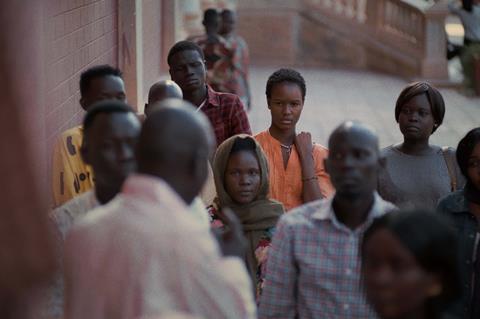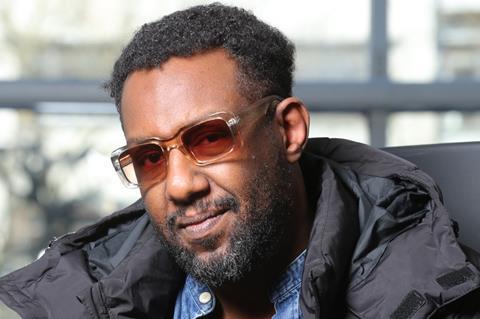Amjad Abu Alala on the journey behind the first Sudanese feature to be selected by Cannes and the impact of war.

The road to Cannes has been fraught with struggle for the filmmakers behind Goodbye Julia, the first Sudanese film to make the official selection in the 76-year history of the festival.
Sudan descended into civil war just two days after the announcement that the directorial feature debut of Mohamed Kordofani would play in Un Certain Regard. It marks the latest conflict in a country that has suffered numerous outbreaks of violent clashes for decades.
“Sudanese filmmakers don’t have the luxury of working in a comfortable environment,” says Amjad Abu Alala, the film’s producer, who won the Venice Lion of the Future award in 2019 with his own debut feature You Will Die At Twenty. “We can’t wait for things to settle down. We always have to struggle.”
Goodbye Julia is reflective of these historic challenges, set against a backdrop of events that led to the South Sudanese independence referendum in 2011, in which 98.8% of southerners voted to split from the north.
Days of atonement

Set in Khartoum, the drama follows two women hailing from the north and south of the country. Mona is a retired singer who seeks redemption for causing the death of a man from the south by offering a job as a maid to his widow, Julia, who is oblivious of Mona’s involvement. The roles are played respectively by Eiman Yousif and Sudanese supermodel Siran Riak, making her feature acting debut.
It follows four years of work on the project by Alala and Kordofani, who first worked together on the latter’s short film Nyerkuk in 2016. “I am always looking to work with ambitious Sudanese filmmakers and I heard about Kordofani, an aircraft engineer who was trying to make films,” recalls Alala. “He has built this story around a tragic period in the history of Sudan. He was born and raised in Khartoum, so has personally lived through these events.”
Finance was pulled together from myriad sources, beginning with the Arab Fund for Arts and Culture in 2019, and going on to include an impressive patchwork of producers. Sudan’s Station Films is lead producer, with co-producers comprising Egypt’s Red Star Films, Sudan’s Klozium Studios, Germany’s Die Gesellschaft, France’s Dolce Vita Films, Saudi Arabia’s CineWaves Films and Egypt’s Ambient Light, as well as Sweden’s RiverFlower and Egypt’s CULT.
The film was shot in 40 days from November 6 to December 15, 2022, with the score recorded during the bombing of Khartoum by young music producer Mazin Hamid. Such conditions have taken their toll on the filmmakers. “It has been exhausting,” says Alala. “I am taking medicine for my blood pressure and we had to keep track of Kordofani’s health during shooting.”
Kordofani is part of a new wave of filmmakers that began to rise following Sudan’s 2019 revolution, which ended a three-decade dictatorship led by Omar al-Bashir. But a military coup in late 2021 and the recent outbreak of war have set back these efforts.
“It is a very sad situation because every time we try to move forward, conflicts set us back,” says Alala. “Now we are facing a civil war that might destroy the country, but it won’t stop us filmmakers.
“As Sudanese we have mixed feelings, between joy for our film being selected for Cannes and sadness because of this violent war.”
However, there is already anticipation for the film’s life beyond Cannes. Pan-Arab distributor MAD Solutions moved into international sales with this title and landed a deal with ARP Sélection for French distribution before the festival began. Goodbye Julia will receive its MENA premiere at the sixth El Gouna Film Festival in Egypt this October.
Meanwhile, Alala continues to work on generating fresh films. As a producer, he recently finished shooting Last Miracle, the first short directed by Egypt’s Abdelwahab Shawky, his first assistant on You Will Die At Twenty.
As a director, Alala is keeping details under wraps, but is lining up two features with Egyptian producers and says there is a wealth of Sudanese tales to tell. “We haven’t had a film industry in Sudan until now and we have a huge treasure trove of untold stories from different cultures that can be shared with the whole world.”






![The Brightest SunScreen[Courtesy HKIFF]](https://d1nslcd7m2225b.cloudfront.net/Pictures/274x183/3/5/0/1448350_thebrightestsunscreencourtesyhkiff_312678.jpg)


















No comments yet